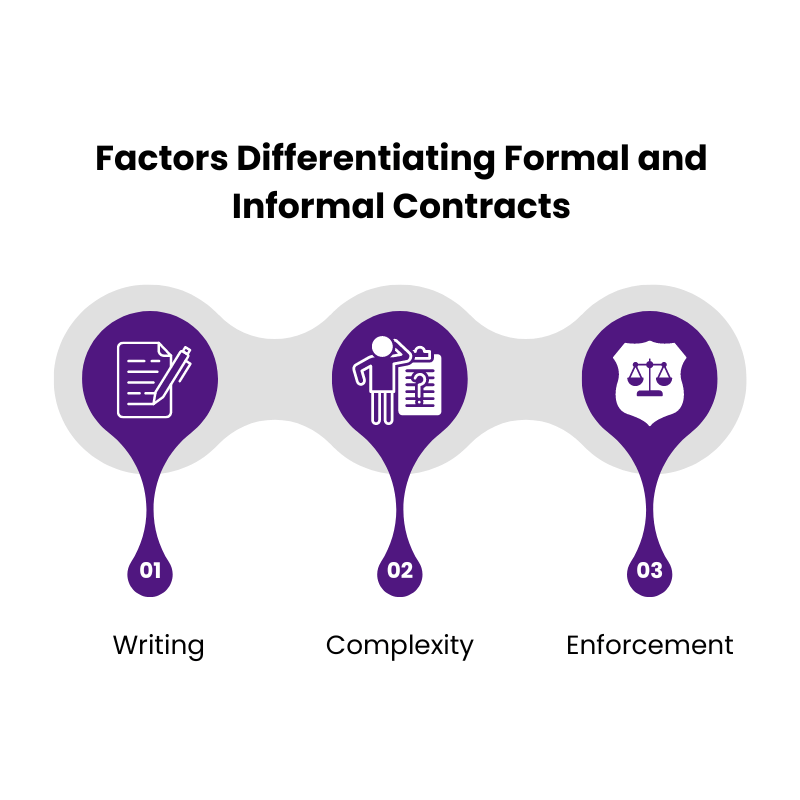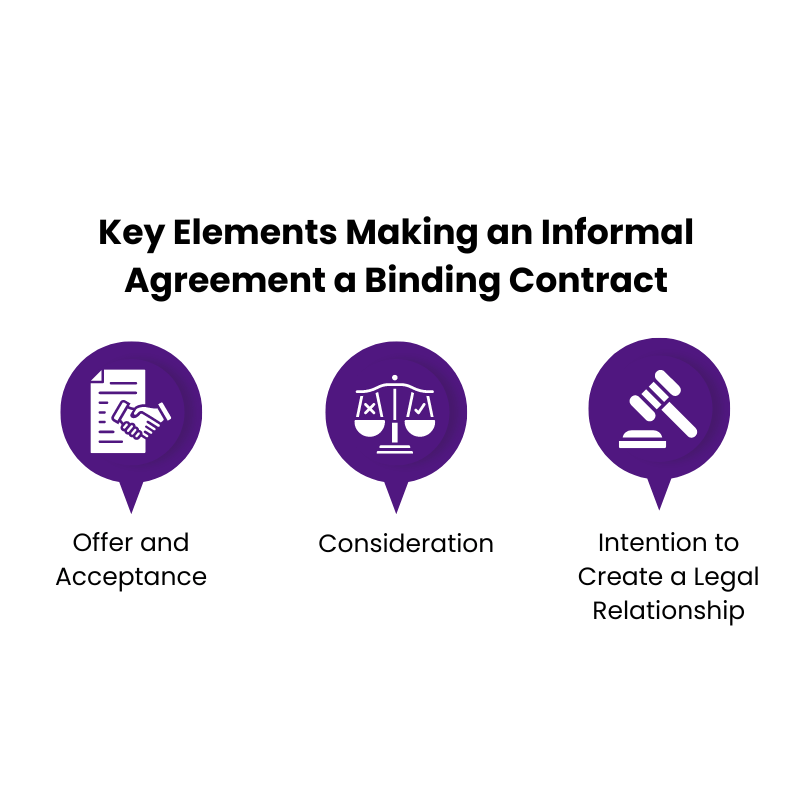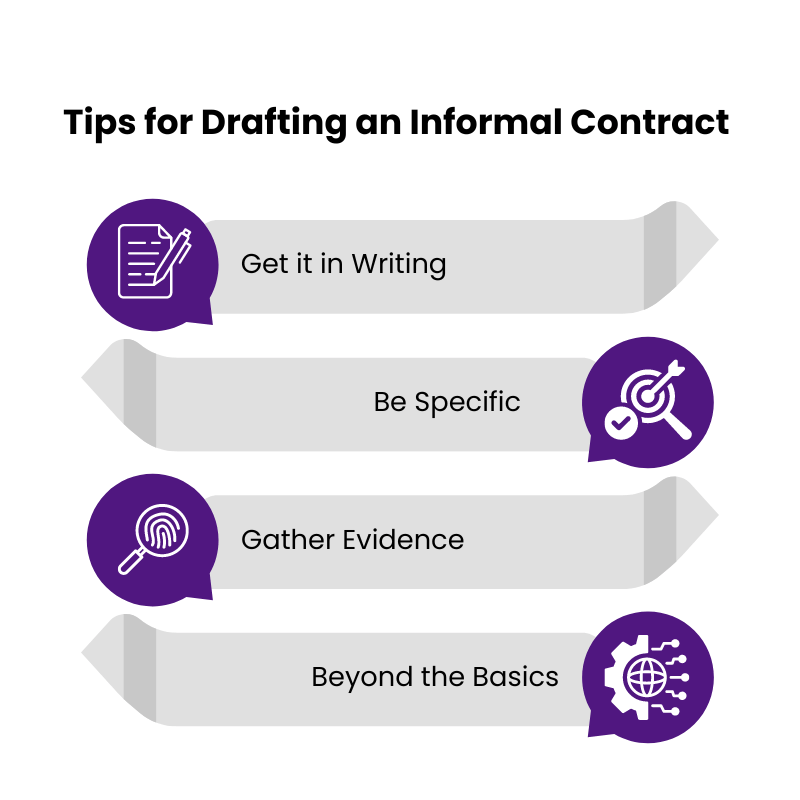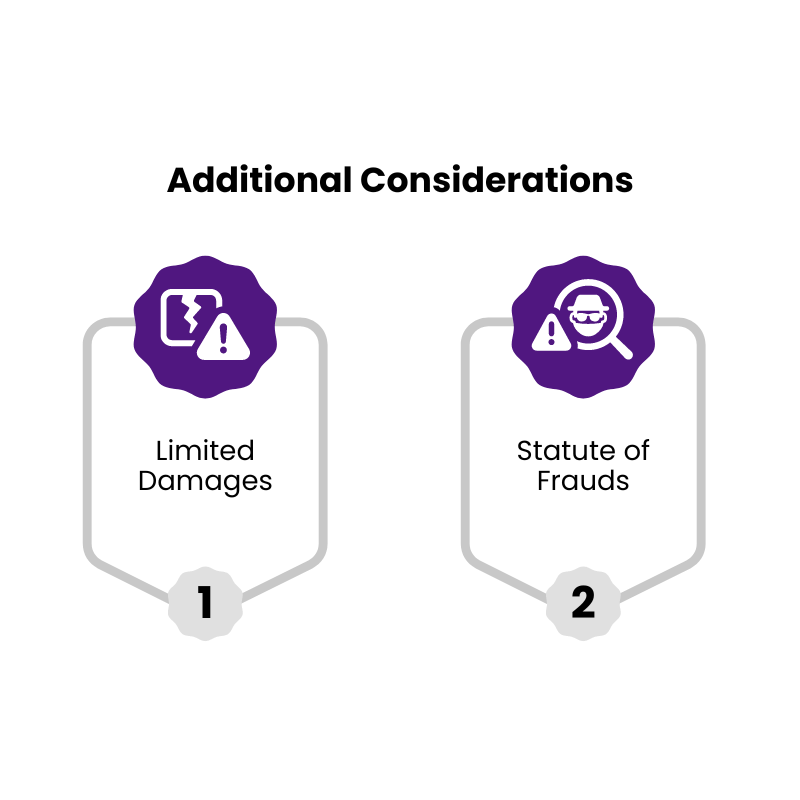Ever shaken hands on a deal with a friend or agreed to return a borrowed tool to your neighbor by next weekend? Congratulations, you’ve just entered an informal contract.
What is an Informal Contract?
Informal contracts are agreements between two or more parties that establish obligations without the need for a formal written document. They rely on mutual understanding and trust, forming the foundation of many everyday transactions.
But unlike their formal counterparts, informal contracts can be trickier to enforce in case of disputes.
This guide will equip you with the knowledge to navigate the world of informal contracts. We’ll explore what they are, how they differ from formal contracts, and provide tips for strengthening them.
Understanding Informal Contracts: The Basics
An informal contract can be formed through spoken words, emails, text messages, or even gestures like a handshake. The key element is a meeting of the minds, where both parties agree to the exchange of goods, services, or money.
Here are some common informal contracts examples:
- Paying a grocery store cashier for your purchases.
- Hiring a handyman to fix a leaky faucet.
- Agreeing to babysit a friend’s child in exchange for borrowing their car.
Informal contracts are generally used for smaller transactions or agreements based on trust. They are quicker and easier to establish than formal contracts, making them ideal for everyday situations.
Formal vs Informal Contracts: Key Differences

While both formal contracts and informal contracts are legally binding agreements, there are some key distinctions:
- Writing: Formal contracts are typically written documents outlining the terms and conditions of the agreement. Informal contracts, on the other hand, are not required to be written down.
- Complexity: Formal contracts are often used for complex transactions involving significant sums of money. They tend to be detailed and may include legalese to address potential issues. Informal contracts are generally simpler and used for less intricate agreements.
- Enforcement: Formal contracts are easier to enforce in court because the written document serves as clear evidence of the agreement. Enforcing informal contracts can be more challenging due to the lack of a written record.
Informal contracts rely heavily on the ability to prove the agreement’s existence and its terms. This can be done through witness testimony, emails, or text messages that document the exchange.
At What Point Does an Informal Agreement Become a Binding Contract?

Not all casual conversations create informal contracts. For an informal agreement to be considered a binding contract, three elements must be present:
- Offer and Acceptance: There must be a clear offer from one party and a corresponding acceptance by the other party.
- Consideration: Both parties must exchange something of value. This could be money, goods, services, or even a promise to do something (or not do something).
- Intention to Create a Legal Relationship: Both parties must have intended to enter into a legally binding agreement. Casual conversations or friendly gestures typically wouldn’t qualify.
For instance, if you ask your neighbor to borrow a cup of sugar and they agree, there’s likely no informal contract. However, if you agree to pay your neighbor $10 to mow your lawn, an informal contract has likely been formed.
How to Write an Informal Contract

While informal contracts offer convenience, their enforceability can be uncertain. Here are some tips to strengthen them:
- Get it in Writing: While not mandatory, putting the agreement in a short email, text message, or even a handwritten note can significantly improve your chances of successfully enforcing the informal contract.
- Be Specific: The clearer the terms of the agreement, the less room there is for misinterpretation. Outline the details of the exchange, including timelines, expectations, and compensation.
- Gather Evidence: Save any emails, text messages, or receipts related to the agreement. Witness testimony can also be helpful.
Beyond the Basics: Special Considerations for Informal Contracts

Informal contracts can be particularly useful in certain situations, but there are some additional considerations:
- Limited Damages: Even if you win a lawsuit to enforce an informal contract, the court may limit the damages you can recover. This is because the burden of proof is higher with informal contracts.
- Statute of Frauds: Some states have a “Statute of Frauds” that requires certain types of contracts to be in writing to be enforceable. It’s always best to consult with an attorney if you’re unsure whether your informal contract falls under this category.
Informal contracts are a prevalent part of our daily lives. They allow us to navigate countless transactions with trust and efficiency.
However, their informality can also be a double-edged sword. While they offer convenience, enforcing them in case of disputes can be challenging. Understanding the nature and limitations of informal contracts empowers you to strike the right balance.
By incorporating some simple practices, like putting basic agreements in writing and keeping records, you can significantly strengthen your informal contracts. Remember, even though they may not be formal documents, they still represent real commitments.
By approaching them with a touch of caution and a dash of clear communication, you can ensure that your informal agreements remain a source of positive collaboration, not frustration.




